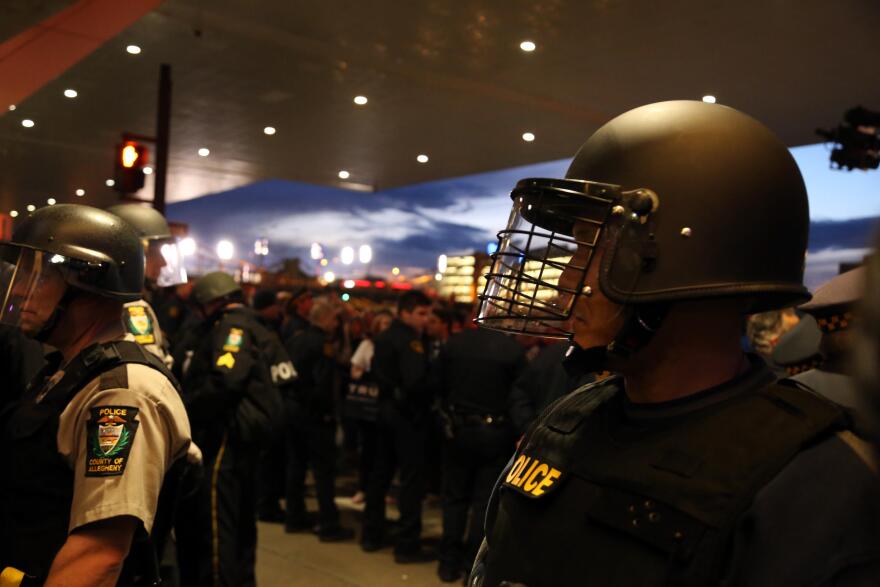On today's program: Philadelphia District Attorney Larry Krasner explains why he’s challenging the constitutionality of the state’s use-of -orce law; Governor Wolf ‘s budget adds money to the state’s pre-school programs, but some worry it won’t be enough to support high-quality early learning; and a look at how the pandemic has upended kids’ social lives.
Philadelphia DA is asking the State Supreme Court to consider constitutionality of current use-of-force law
(0:00 — 7:03)
While the country awaited the eventual conviction of Derek Chauvin for the murder of George Floyd, the Pennsylvania Supreme Court agreed to consider three questions regarding the constitutionality of the commonwealth’s police use-of-force law.
This comes after the Philadelphia District Attorney’s office charged former Philadelphia police officer Ryan Pownall with criminal homicide in the 2017 shooting death of David Jones. Pownall, who is white, shot Jones, who is Black, following a scuffle and after Jones tossed a gun.
“Pennsylvania, like many other states, is a place where legislatures have been beholden to police unions for quite some time,” explains Philadelphia district attorney Larry Krasner. “Pennsylvania has come up with a variety of excuses and justifications for violence and for homicide committed by police officers that are on duty that, frankly, I believe are unconstitutional.”
The state’s use-of-force law allows that officers are “justified in the use of any force which [they] believe to be necessary to effect the arrest and of any force which [they] believe to be necessary to defend himself or another from bodily harm while making the arrest.”
Krasner says the wording of the policy is too broad, and doesn’t align with rulings by the Supreme Court.
“We don’t just believe that a police officer can gun you down when you’re unarmed and running away, and have no basis to believe that person poses an imminent and terrible danger to either you or the public,” says Krasner, referencing the Jones case.
Krasner says this issue has to be taken up with the courts because “the legislature has abdicated its duty to write constitutional laws.”
High quality preschool is facing existing hurdles the pandemic has made worse
(7:06 — 13:04)
The pandemic derailed schooling and upending work for parents across the country. The country’s youngest children faced virtual schooling, and early education advocates faced potentially shrinking funds.
According to Rutgers’ National Institute for Early Education Research, three and four year olds have increasingly enrolled in pre-school since 2002, but at its highest level last year, only 22% of four year olds and 11% of three year olds in Pennsylvania enrolled in preschool.
“Research has shown the importance of investing in high-quality Pre-K. It can improve short and long-term outcomes for children,” explains Emily Neff, the assistant director of public policy and practice with Trying Together. “It’s especially true for children who are from low-income families, for Black and Brown children, and children who have developmental delays.”
Neff says it is very expensive, for both families and for providers to create and access high-quality pre-K programs.
“Currently in Allegheny County, about 54% of eligible children do not have access to high quality pre-K and across Pennsylvania, 64% of eligible children don’t have access to high-quality pre-K,” says Neff.
In this year’s budget, Governor Tom Wolf committed to increase funding to state early education programs, which Neff says will serve 3,200 new children across the state, but the industry still needs more support.
“We know that across Pennsylvania, 592 providers have had to close permanently because of the pandemic,” says Neff. “We’re continuing to make sure the industry is stabilized and really recognized as infrastructure. Without child care, without pre-K, parents can’t go back to work: These programs are the work force behind the workforce.”
Experts and parents wonder how students will fare after a year of limited social interactions
(13:06 — 18:00)
School is like a social laboratory: Kindergarteners learn how to follow rules, middle schoolers navigate hierarchies, high schoolers test boundaries.
So much of that casual social interaction went away during virtual school.
Now, experts and parents wonder, what’s next? Keystone Crossroads reporter Avi Wolfman-Arent has more.
The Confluence, where the news comes together, is 90.5 WESA’s daily news program. Tune in weekdays at 9 a.m. to hear newsmakers and innovators take an in-depth look at stories important to the Pittsburgh region. Find more episodes of The Confluence here or wherever you get your podcasts.





